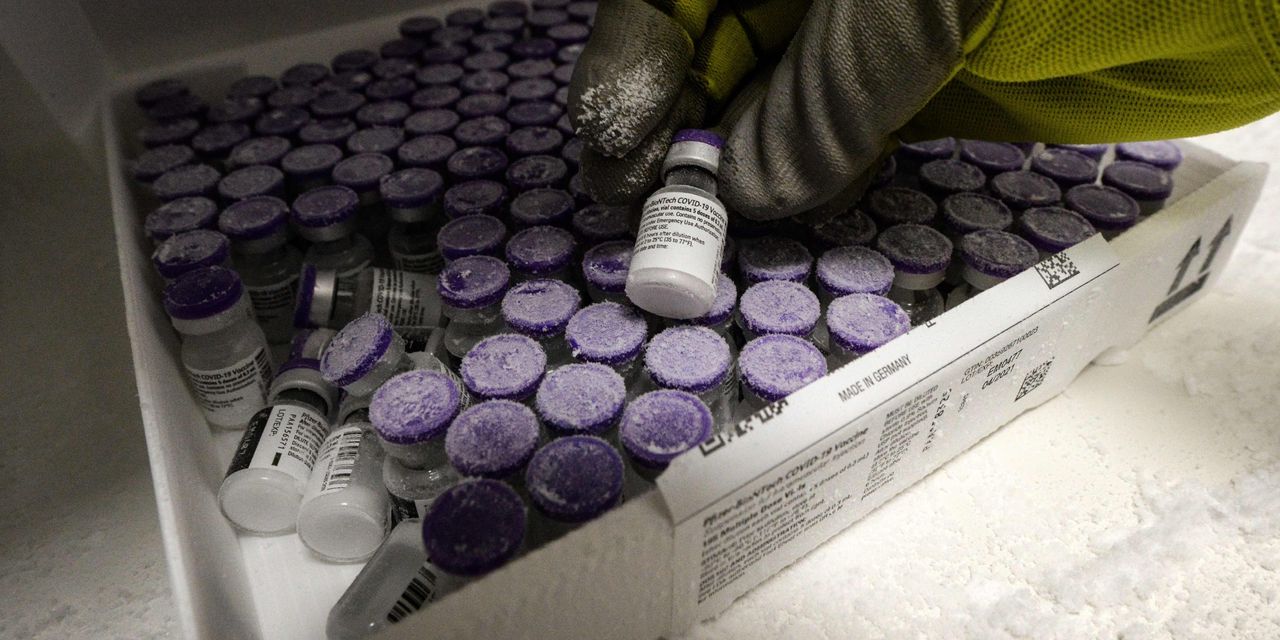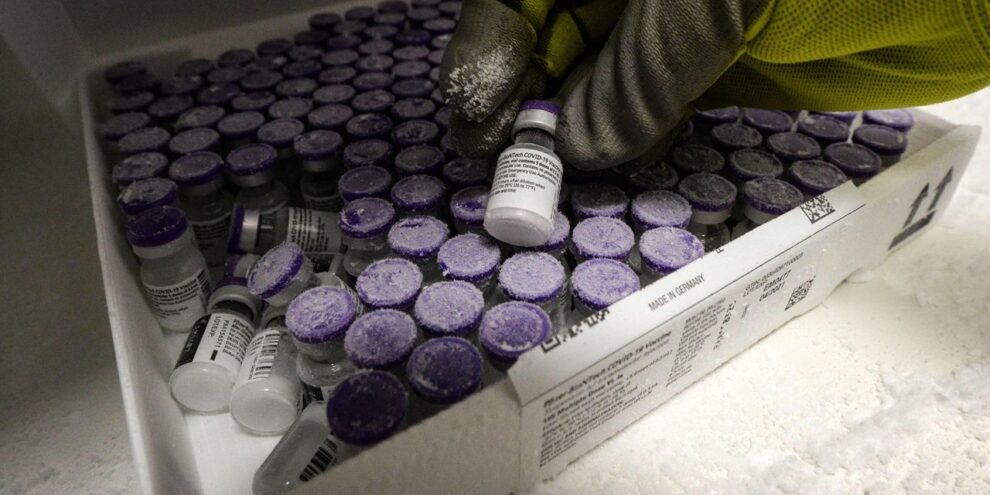
The mass campaign to inoculate millions against COVID-19 was always going to be a monumental challenge. The fact that some vaccines are rendered useless if not kept at ultralow temperatures only complicates matters.
The U.K.’s National Health Service, or NHS, has turned to using blockchain technology to aid the rollout of vaccines, using the system that underpins cryptocurrencies like bitcoin BTCUSD, -4.96% and ether ETHUSD, -7.86% to monitor the supply and cold storage of shots at two hospitals.
Of the three COVID-19 vaccines approved for use in the U.K., the one developed by U.S. drug company Pfizer PFE, +0.08% and its German partner BioNTech 22UA, +0.98% must be kept at temperatures of -70 degrees Celsius (-94 degrees Fahrenheit). That is colder than winter days in Antarctica.
Read: Round-the-clock vaccination sites to be piloted in England in COVID-19 drive
The vaccine developed by U.K.-Swedish drug company AstraZeneca AZN, -0.07% and the University of Oxford can be kept at normal refrigerator temperatures, while the jab from biotech Moderna MRNA, -3.58% must be kept at -20 degrees Celsius (-4 degrees Fahrenheit).
Once thawed, but still refrigerated, the Pfizer–BioNTech vaccine is only good for another five days at 2-8 degrees Celsius.
This raises the stakes for efficient logistics when the U.K. is rapidly accelerating its vaccine rollout: more than 4 million people have received the first of two doses, and the government aims to vaccinate 80% of all people over 50 years old and all clinically vulnerable adults by early May.
Two hospitals, in Stratford-upon-Avon and Warwick in central England, are working with Hedera Hashgraph and Everyware to ensure the vitality of the Pfizer–BioNTech vaccine using blockchain technology — breaking new ground and paving the way for a wider rollout across the NHS.
Hedera Hashgraph provides blockchain networks. The company is backed by companies including plane manufacturer Boeing BA, +3.13%, and technology companies IBM IBM, +0.49%, LG Electronics 066570, +12.84% and Google, owned by Alphabet GOOGL, +3.29%. Everyware is an asset and equipment monitor.
With Everyware’s sensors and Hedera’s blockchain system, the NHS is using a distributed ledger, which is an offshoot of blockchain technology, to accurately track the cold-storage equipment holding the vaccines.
A distributed ledger is a decentralized and synchronized digital system for sharing data, and is largely immune to problems introduced into tracking systems by human error.
Cryptocurrencies like bitcoin use blockchain’s decentralized public ledger to record encrypted transactions. Hospitals can use the same technology to track sensitive medical assets with unique storage requirements.
Read: Investors think there’s more chance Tesla and bitcoin will halve than double, warns Deutsche Bank
Everyware already provides tracking services for chemotherapy drugs, blood, and plasma.
“Monitoring the ongoing temperature of these refrigeration units is critically important, and ensuring the integrity of that data is an equally important part of maintaining trust in the results, and being able to easily share them across the entire vaccine supply chain,” said Tom Screen, Everyware’s technical director.
“Hedera’s distributed ledger technology provides that tamper-proof record-keeping system, making it perfect for recording and validating results efficiently and cost-effectively,” Screen said.











Add Comment